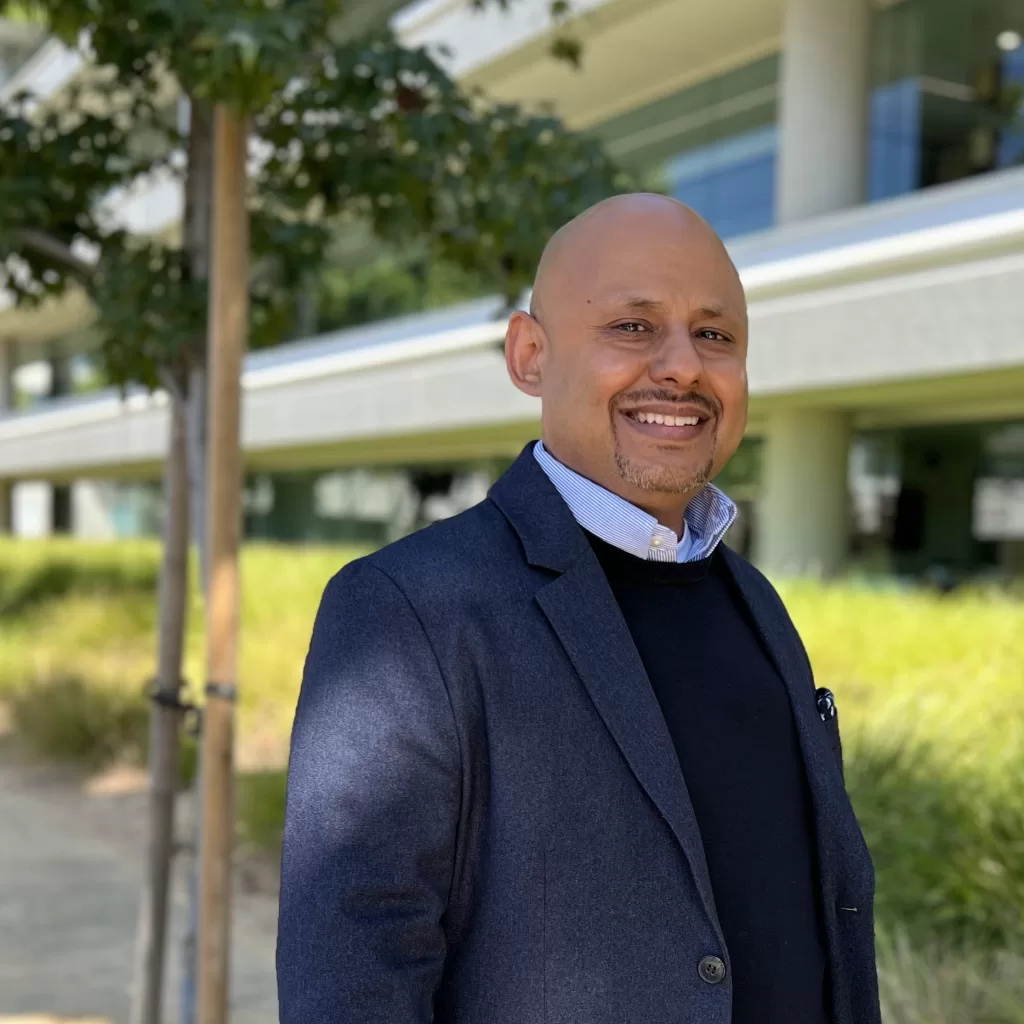This article was based on an interview with Mr Ramon Pinero, General Manager of BlackBerry AtHoc, and Mr Jonathan Jackson, Senior Director of Strategic Accounts at BlackBerry.
As we increasingly depend on digital systems for everyday operations, the security of our critical infrastructure faces unprecedented challenges. Cybersecurity, once a consideration largely confined to the tech sector, now plays a central role in safeguarding industries like transportation, healthcare, energy, and smart cities. BlackBerry, a company once synonymous with mobile devices, has shifted focus to become a key player in cybersecurity, integrating emerging technologies such as artificial intelligence (AI), machine learning, and the Internet of Things (IoT) to bolster infrastructure resilience.
Pivoting Mobile Leader to Cybersecurity Powerhouse
BlackBerry’s journey from a hardware pioneer to a cybersecurity leader was driven by recognizing a shift in the global digital landscape. Cybersecurity has evolved into an essential growth market in an interconnected world with myriad endpoints—from smartphones to autonomous vehicles and IoT sensors.

BlackBerry recognized this early and made a strategic decision to focus on software and services. “We saw an opportunity to make a strategic decision to focus on software and services in cybersecurity as a growth market,” noted Jonathan Jackson, Senior Director of Strategic Accounts at BlackBerry. This shift positioned the company to lead in two critical areas: cybersecurity and embedded systems, which are crucial in protecting modern infrastructure.
AI and Machine Learning: BlackBerry’s New Arsenal
At the core of BlackBerry’s transformation is its acquisition of Cylance, an AI-driven cybersecurity firm. The integration of Cylance’s AI and machine learning capabilities has empowered BlackBerry to prevent and respond to emerging threats. The nature of AI allows for predictive security, meaning that BlackBerry’s systems can anticipate and stop attacks before they materialize.
“Cylance AI is embedded across the full security stack of BlackBerry’s portfolio today,” explained Jackson. This approach is crucial in a world where cyberattacks evolve constantly, with AI even being used by malicious actors to generate never-before-seen threats. By using AI to fight AI, BlackBerry ensures it remains a step ahead of cybercriminals, leveraging technologies like deep learning to predict and prevent threats to critical systems.
Emergence of Smart Cities and the Need to Build Cyber Resilience
As smart cities emerge worldwide, they bring with them a host of new security challenges. The interconnected nature of smart city infrastructure—where traffic systems, public services, and energy grids communicate in real time—expands the potential attack surface for cybercriminals. BlackBerry’s embedded systems, designed to secure IoT devices and smart city infrastructure, are vital in protecting these increasingly complex environments.

BlackBerry has already made significant strides in securing automotive systems, with their technology being used by 24 of the top 25 electric vehicle manufacturers. This same technology, paired with AI and machine learning, is essential in smart cities, where the attack surface is ever-growing. “As you have more connected systems, you increase the attack surface of that system,” the company pointed out. Ensuring that these systems are secure is vital to maintaining the resilience of smart cities.
As the attack surface increases, the question of cyber security incidences changes from an “if” to a “when”. This is where policies such as Zero Trust can help. However, smart cities will also benefit from the implementation of threat intelligence and managed detection and response (MDR) solutions.
Zero Trust and Critical Infrastructure
One of the cornerstones of BlackBerry’s approach to cybersecurity resilience is the zero-trust framework. As applied to critical infrastructure—whether it’s power grids, transportation systems, or hospitals—this model ensures that no entity within the system is inherently trusted. Instead, all systems, devices, and users must continuously authenticate their identity to access sensitive data or systems.
This level of scrutiny is essential in industries where the stakes are highest. Ramon Pinero, General Manager of Blackberry AtHoc emphasizes, “Zero trust is important especially for critical infrastructure because of the types of data and assets that are in critical infrastructure,”. In an era where cyberattacks can have catastrophic real-world consequences, securing every aspect of infrastructure is paramount.
Collaborating to Bridge the Skills Gap
The challenges of securing critical infrastructure are further compounded by a global skills shortage in cybersecurity. BlackBerry’s collaboration with the Malaysian government exemplifies how partnerships can help address this gap. Through the Cybersecurity Center of Excellence in Cyberjaya, BlackBerry is training the next generation of cybersecurity professionals, with a focus on AI, smart cities, and IoT security.
The initiative aims to develop local talent capable of addressing emerging cyber threats, ensuring Malaysia’s infrastructure is both secure and future-ready. As more countries invest in smart city technologies, this collaboration model could serve as a blueprint for other regions looking to build cybersecurity resilience into their infrastructure.
The Power of Prevention
While responding to cyberattacks is critical, BlackBerry strongly emphasizes prevention. Their Managed Detection and Response (MDR) services, powered by Cylance’s AI, help organizations that may not have in-house security teams by offering continuous threat monitoring and proactive security measures. With the ability to predict and prevent attacks, BlackBerry’s MDR solutions ensure that businesses and critical infrastructure providers can focus on operations without worrying about constant cybersecurity threats.

In their approach, prevention is key. “If we can prevent attacks from happening, it means that organizations don’t have to spend time and resources recovering from incidents,” Ramon further emphasized. This proactive mindset is essential in today’s world, where the consequences of a successful cyberattack on critical infrastructure can be disastrous.
A Cyber-Resilient Future
As emerging technologies like AI, machine learning, and IoT continue to shape the future of infrastructure, ensuring that these systems are secure is more important than ever. BlackBerry’s strategic pivot from hardware to cybersecurity positions it as a leader in building resilient infrastructure, whether it’s in smart cities, healthcare, or automotive industries.
By focusing on prevention, embedding AI into their solutions, and addressing the cybersecurity skills gap, BlackBerry is helping organizations and governments alike secure the digital systems that power our world. In doing so, they ensure that critical infrastructure remains resilient in the face of an ever-evolving threat landscape.
This article was written based on an interview session with Mr Ramon Pinero, General Manager of BlackBerry AtHoc and Mr Jonathan Jackson Senior Director of Strategic Accounts at BlackBerry.

Ramon Pinero
General Manager BlackBerry AtHoc
Ramon Pinero is the General Manager of BlackBerry AtHoc, where he oversees all aspects of the critical event management business. With more than 20 years of experience in crisis/emergency management (CEM) technologies, Ramon brings a deep understanding of both product development and customer success.
With a passion for technology and deep roots in emergency response, Ramon continues to advance BlackBerry AtHoc’s position as the market leader. He is focused on driving strategy, fostering innovation, and enabling AtHoc’s technology to make an even greater impact—helping more organizations increase their resiliency and save lives through fast, accurate communications before, during, and after critical situations.

Jonathan Jackson
Senior Director, Strategic Technical Sales APAC at BlackBerry
Jonathan Jackson (JJ) is the a Senior Director, Strategic Technical Sales APAC for BlackBerry. With over 20 years’ of experience, he helps organisations manage their cyber risk, leveraging the best of breed solutions to stop cyber attacks. JJ is a staunch advocate of protecting data and privacy and is a frequent spokesperson on cyber threat intelligence in Australia and all across APAC.
